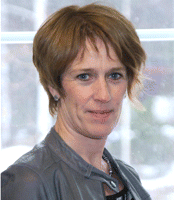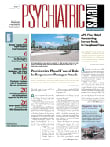The bombing of a government building in Oslo followed by the shootings at a youth camp on the island of Utøya on July 22 left 77 Norwegians dead, many more wounded, and an entire nation in shock following the worst disaster there since World War II.
Norway's psychiatrists and mental health professionals responded immediately to the event, whose effects are expected to be felt for years.
The following is an e-mail interview, slightly edited for clarity and length, with Tone Skjerven, M.D., president of the Norwegian Psychiatric Association, discussing the aftermath of the killings. She is also head of the Department of Trauma Treatment at Modum Bad Psychiatric Hospital in Vikersund.
How are people in Norway reacting to the event?
There has been an amazing openness, empathy, and caring among the young people who were exposed to the horrible massacre at Utøya. The motivation to go on and fight for democracy and openness in society has been consistent and overwhelming.
The sense of unreality reported by some people shortly afterward is, from a trauma perspective, part of a normal protective response soon after traumatic events. We do not yet have any detailed information to tell if this is a typical response among young people.
Did mental health professionals join the official response teams after the events in Oslo and Utøya?
Yes, there were psychiatrists and psychologists on the emergency teams and in the emergency departments of the larger hospitals, and many also signed up voluntarily. They began organizing psychological first aid and called for more assistance immediately after word of the massacre was broadcast.
What has the Norwegian Psychiatric Association been doing?
Once we knew the extent of the damage, we distributed an electronic letter to all our members, calling for their availability to serve the victims when they arrived to homes. We asked them to cooperate with the first aid and crisis teams that exist in every municipality and to offer guidance to these teams.
We are working intensively in close cooperation with the Norwegian Medical Association and with an expert group appointed by the Norwegian health authorities concerning the follow-up of the victims and their relatives and other people involved in the tragedy.
This work will continue for a long time, both by the health authorities and by local crisis teams and health services.
Has there been an increase in seeking mental health care on the part of the general population or first responders since the shootings?
Two weeks after the massacre, there were reports of increased demand for psychiatric help both for hospitalization and outpatient treatment.
Mental health professionals are on the watch in particular for retraumatization in some vulnerable groups like immigrants from war zones, older people who have experienced World War II, and others.
Immediately after the events, a hotel at Sundvollen, situated close to Utøya, established a reception center for the victims and their families. Volunteer and professional helpers were offered debriefing and follow-up at Sundvollen from health workers and members of the clergy.
The accused killer, a 32-year-old Norwegian, Anders Behring Breivik, has admitted carrying out the attacks. He was described by his attorney as "insane." How does Norwegian law define insanity in criminal cases, and what procedures are likely to be followed?
The Norwegian Penal Code states that every man or woman who commits any crime in a state of psychosis, "unconsciousness" (the latter meaning extremely disturbed consciousness), or severe mental retardation will be regarded as unaccountable. In such a case, the person may be sentenced to compulsory mental health care.
Those who are found to have been either psychotic or "unconscious" during the time of their actions cannot be sentenced to prison, regardless of how severe the crime was.
The court will always base its judgment on an expert report given by two independent forensic psychiatrists appointed by the court before the trial. They do a thorough psychiatric examination of the defendant, including neuropsychological tests if necessary.
The forensic psychiatrists also personally follow such trials from beginning to end, listening to testimony and observing the defendant in order to present their findings and judgment to the court both verbally and in writing.
What can psychiatrists and other mental health professionals in other countries do to help Norway at this time?
We sincerely appreciate the sympathy from our friends all over the world. As a traumatic event, the massacre at Utøya is of a very special character, and we do not know yet what consequences it may have for the victims and their families, and for our whole society.

